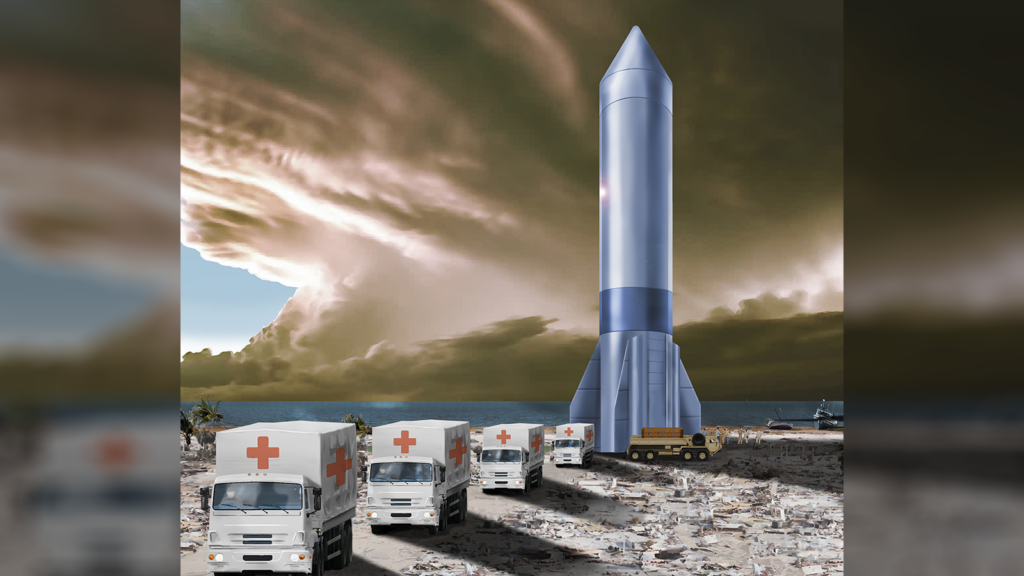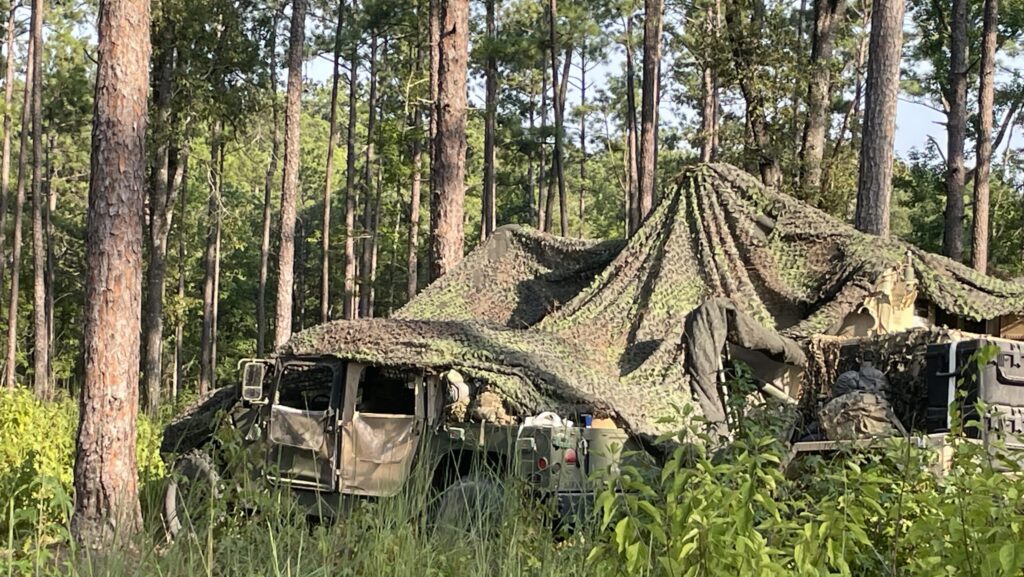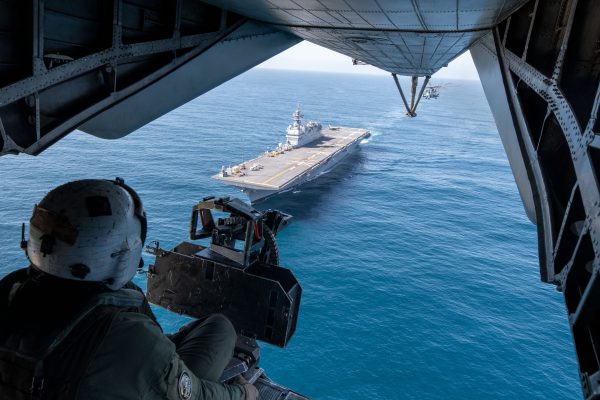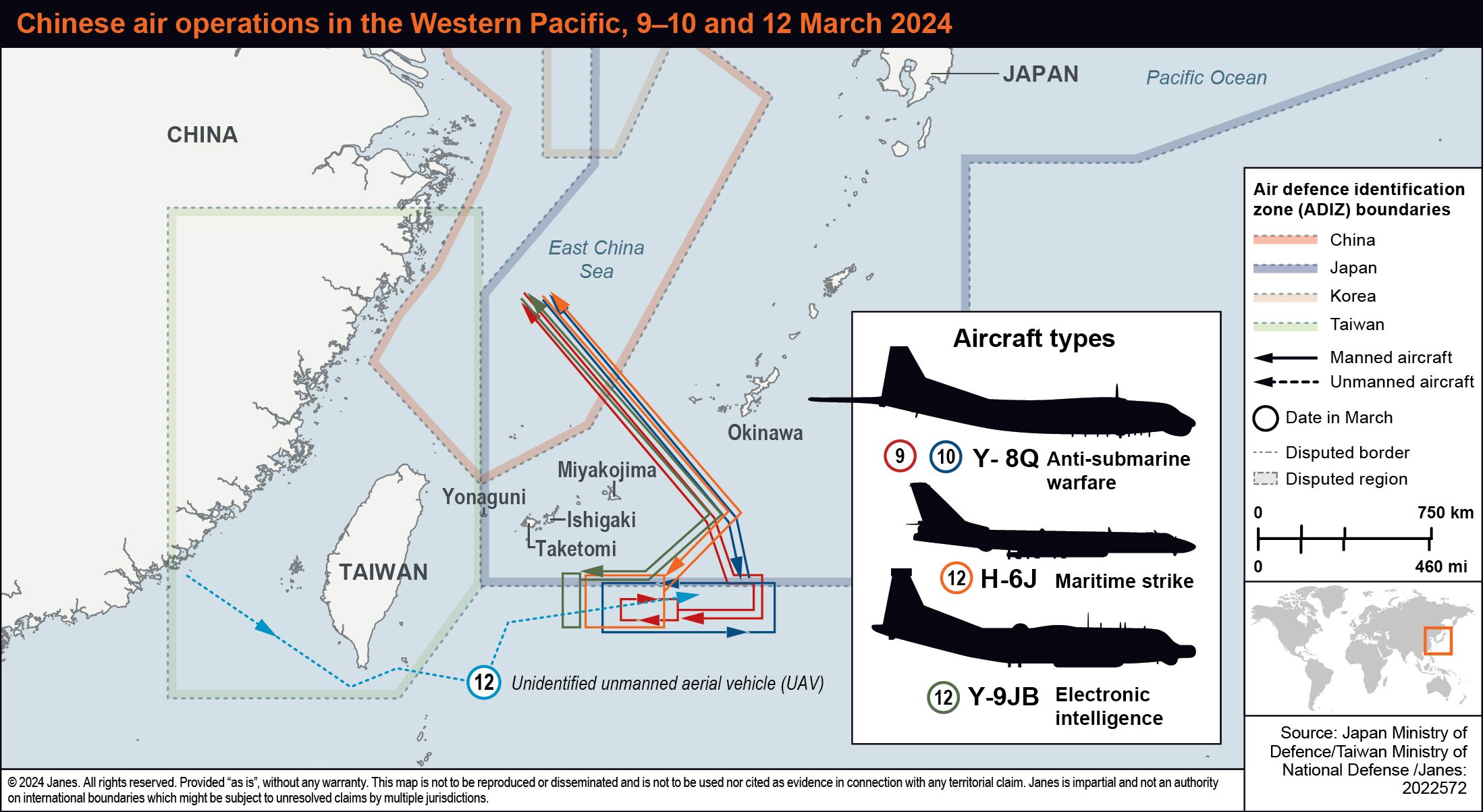An artist’s concept for the Air Force Research Laboratory’s Rocket Cargo program. (AFRL)
WASHINGTON — The Air Force Research Laboratory’s Rocket Cargo Vanguard program gets “real boy” status as a Space Force prototype effort — and a new name, Point-to-Point Delivery (P2PD) — in the service’s fiscal 2025 budget request.
While the dollar amount is small at only $4 million in research, development, test & evaluation (RDT&E), the funding request marks the up-to-now experimental effort to literally rocket military supplies around the planet as a formal “new start” for the service. The request doesn’t show any planned out-year spending, presumably because the FY25 monies are aimed at simply transitioning the tech.
“The near-term focus of the P2PD program is to establish the foundational capability areas through operational integration and fielding of Point-to-Point Delivery (P2PD) services, specifically the development and integration of prototype air drop delivery systems,” the FY25 request explains. “The P2PD project will integrate technology developed within the Rocket Cargo Vanguard program, as well as identify, evaluate, and certify additional Point to Point Delivery service providers.”
The initial Rocket Cargo concept is to blast military kit from one earthly base to another to rapidly equip deployed forces, with the Space Force already eyeing potential use in the Indo-Pacific theater. But in the future, service officials can see the possibility of transporting cargo routinely to space-based outposts, or from and to space stations. The program’s end game is to buy delivery services from commercial providers.
The investment “is focused on utilizing vehicles that traverse from or through space to transport DoD materiel anywhere around the world within tactically responsive timelines,” the Space Force budget justification documents, or j-books, state.
The FY25 funds specifically “will support the detailed engineering design necessary for a P2PD service provider to perform airdrop payload delivery,” the j-books state.
AFRL initiated Rocket Cargo as one of its high-priority Vanguard programs in June 2021, partnering with the Space Force and US Transportation Command, and in January 2022 awarded a $102 million contract to SpaceX to explore use of the company’s gigantic Starship to blast cargo through space. TRANSCOM also has signed no-cost Cooperative Research And Development Agreements (CRADAs) with SpaceX, BlueOrigin, Sierra Space, and Rocket Lab.
The Space Force budget request notes that the FY25 effort “will build on AFRL’s previous analysis of the angle-of-attack, door locations, ejection speeds, container sizes, reaction forces and expected actuation authority required to counter those forces, and the aerodynamics of the ejected payload in flight. AFRL has also completed the first phase of wind tunnel testing, analysis, and operational planning.”





















Discussion about this post